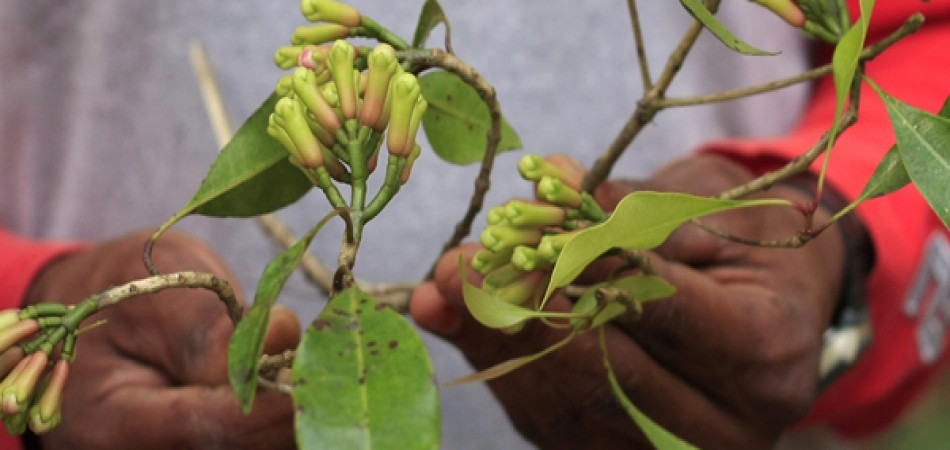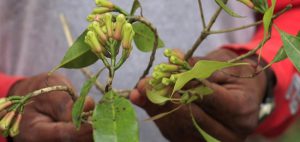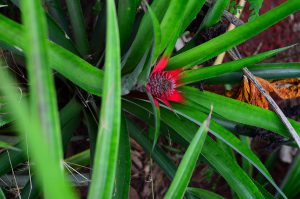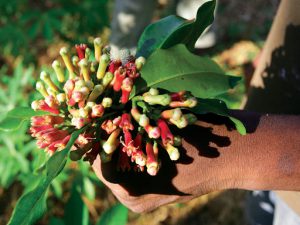- Overview
- Tour Outline
- Tour Includes
- Tour Excludes
- Gallery
- Reviews
Spice farms in Zanzibar are not generally commercial growing operations with single species cultivation, but rather gardens with trees, shrubs, and grasses all grown together in the shade of mango and jackfruit trees. It can be quite surprising to see the range of different plants from which spices are obtained and the different methods by which they are extracted.
Ancient times
The popularity of spices has its origin in ancient times when one of the most common means of preserving food was that of drying it, especially meat and fish. Spices were needed in order to add flavor to meals, and in this way turned into a major trade as most spices grew only in South-East Asia. When the Omani Arabs made Zanzibar part of the Sultanate of Oman, they assumed that the climate in Zanzibar would be favorable to spice plants and decided, instead of importing spices from South-East Asia at a very high cost, to try and grow them in Zanzibar. The experiment turned into a large success – although unfortunately at the cost of nearly all original rain forests on the islands.
Especially the cloves became famous – in particular those grown on Pemba – but also other spices grew, such as vanilla (which, not being an indigenous plant, up to this day has to be pollinated by hand!), turmeric, cardamom, cinnamon, and many others.
The tour
On this half-day tour through our chosen spice farm, you will not only find out how different spices grow and from which part of the plant they are made, but also that allspice plants are medicinal plants, as well. Our specialized guide Mr. Said is a professional herbalist, who has extensive knowledge of the healing properties of spices and fruits and has successfully proved it (from the simple flu to conceiving problems…). The tour can be done in the morning or in the afternoon. Please enjoy the lovely spice tea there and taste a variety of fresh fruit.
Taste the food!
Recommendation: The spice farm’s owner’s wife is a fantastic cook and prepares an excellent typical Swahili lunch buffet! There’s a large choice of Pilau rice, curry stew, spinach and beans cooked in coconut sauce, grilled fish, freshly pressed fruit juices, spice tea, or Zanzibar coefficients, but also with lots of love!
We pick you up at 8:30 in the morning and take you to Kidichi where you will start your walking tours to the Spice farms as you will be guided by a professional local guide who will speak your language explaining to you about the farms, giving you the information about the history, the locals and showing you different plantations and the spices it produces and how the spices are used as ingredients to our daily life activities whether is food industries or cosmetics. You will get to taste fruits and buy spices at your own pace. After 3 -4 hours of tour, you will be taken back and dropped off at your hotel of stay.
No details found.
No details found.




There are no reviews yet.